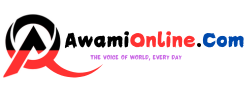Only 35% of political parties maintain operational websites: Fafen

Majority of Parties Lack Operational Websites Despite Legal and Public Expectations
A report released by the Free and Fair Election Network (FAFEN), titled “Assessing Web Presence of Political Parties in Pakistan”, uncovers that a significant number of political parties in Pakistan are yet to establish a credible online presence. Out of 166 registered political parties, only 58 (around 35%) operate fully or partially functional websites.
Parliamentary Parties Perform Better but Still Fall Short
Among the 20 political parties currently holding seats in either the Federal Parliament or Provincial Assemblies, only 14 (70%) have websites that are operational. This reflects a digital gap even within the mainstream political landscape.
Legal Obligation Under Elections Act Overlooked
As per Section 208(4) of the Elections Act, 2017, every political party is required to publish updated lists of its central office bearers and executive committee members on its official website. However:
- Just 40 parties (69%) with functioning websites have shared lists of their central office bearers.
- Only 6 parties (10%) have uploaded information about their executive committee members.
Social Media is No Replacement for Structured Web Platforms
Many parties prefer to maintain active social media accounts, but FAFEN emphasizes that these platforms cannot serve as alternatives to official websites. The algorithm-driven and short-lived nature of social media content makes it unsuitable for archiving critical party data in an accessible manner.
Parties with Legislative Representation Lead in Web Content
The report observes that parties represented in legislative bodies generally provide richer online content. For example:
- Jamaat-e-Islami (JI) topped the list by providing 18 out of the 30 categories of information reviewed.
- Pakistan Tehreek-e-Insaf (PTI) followed with a score of 15, although its site is blocked in Pakistan and requires a VPN for access.
- Pakistan Peoples Party Parliamentarians (PPPP) scored 12, and Pakistan Muslim League-Nawaz (PML-N) scored 11.
Other scores include:
- Awami National Party (ANP) – 9
- Haq Do Tehreek Balochistan (HDT) and MQM-P – 8 each
- Sunni Ittehad Council and PkMAP – 7 each
- TLP and JUIP – 6 each
- MWM – 5
- BAP – 4
- PML-Q – 1
Non-Parliamentary Parties Remain Digitally Marginalized
Among parties with no parliamentary seats, Pakistan Tehreek Shadbad (PTS) stood out by scoring 13 out of the 30 evaluated criteria — the highest in this category.
Content Availability and Transparency: A Mixed Picture
While most websites include basic party information and contact details, the report found financial transparency to be the most neglected area.
Commonly Shared Information Includes:
- Party Goals and Mission – Featured on 88% of websites, as required under Section 201(1)(a) of the Elections Act, 2017.
- Contact Information – Available on 83% of sites.
- Social Media Links – Shared on 79% of the websites reviewed.
